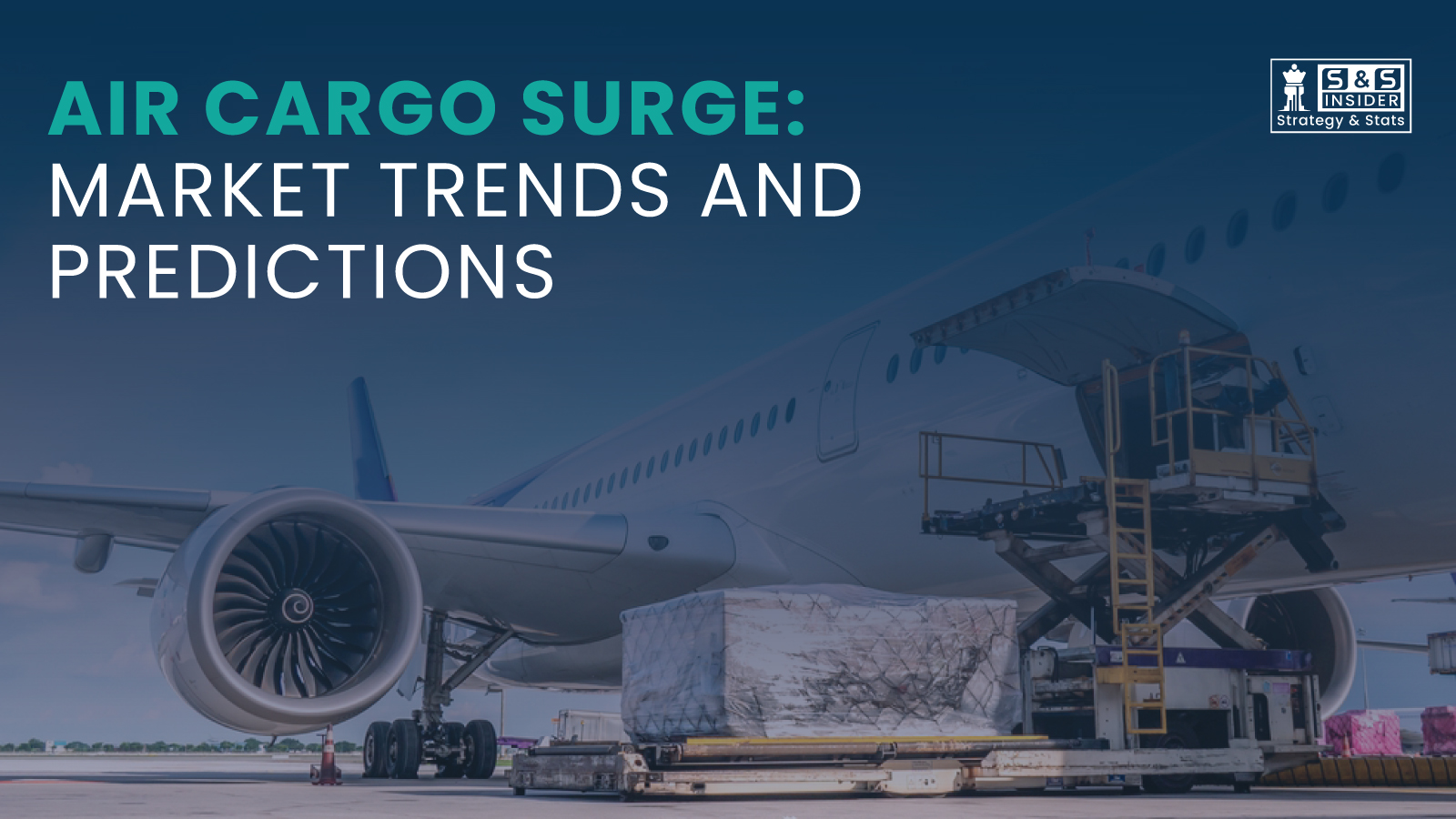The air cargo industry is showing a transformative boom, and its market size was valued at USD 182.09 Billion in 2023. It is expected to reach USD 268.79 Billion by 2032, at a CAGR of 4.4% during the forecast period (2024–2032). This boom is indicative of the range of factors that enable the sector to respond to global trade patterns, e-commerce growth, and technological advancements, positioning it as a key enabler of contemporary supply chains. With the increasing volatility in countries around the world, air freight is stepping into an essential role within the logistics ecosystem.
Current Market Trends
- E-commerce Expansion: The air cargo sector has been significantly impacted by the meteoric rise of e-commerce. Today, around 20% of total air cargo volumes are generated from online shopping, as the air cargo sector relies on fast and efficient logistics solutions to meet customer demands for same-day delivery and next-day delivery.
- Technological Innovations: New freighter aircraft, including Boeing’s 777-300ERSF and Airbus’s A330-300BDSF conversions, enable better capacity and operational efficiencies. A new generation of freighters, like the Boeing 747-8F, is about to leave behind as older models gradually get consigned to retirement while staying committed to sustainability and, in these units right here, meet growing demand.
- Capacity Normalization: The industry is slowly normalizing from the pandemic fuel capacity crunch. As airlines shift from spot bookings to long-term contracts driven by availability, the market is looking more predictable and is able to plan better.
- Sustainability Efforts: Further pro-cyclical factors include environmental concerns, such as green commitments, as airlines prepare for a new environment with green pricing, sustainable aviation fuels, carbon-neutrality tech, etc. This trend is consistent with stricter global regulations and increasing consumer demand for environmentally friendly logistics.
Driving Forces Behind the Surge
Air cargo is booming as a result of the revival of world trade and the growing digital economy. The Asia-Pacific region is still the epicenter of air cargo growth as manufacturing hubs such as China and India expand production. Exports were so strong from these regions that they are not only strengthening global supply chains but are spurring innovation in the sector too.
Route strategies are being reshaped by demand for air cargo in North America and Europe. Freight capacity for transatlantic legs is also changing as airlines re-adjust to meet the demand for transpacific freight. These measures tell the tale of a global market that is turning fast and wily.
The integration of technology has also been transformative. From blockchain providing increased transparency to artificial intelligence predicting cargo flows and optimizing capacity, digital solutions are transforming how the industry functions. Leveraging these technologies, air cargo providers can provide faster, more efficient, and more reliable services.

Looking Ahead: Predictions for the Air Cargo Market
As the industry moves forward, several key trends are expected to shape its evolution:
- E-commerce as a Growth Engine: E-commerce dominance is expected to continue expanding, generating increased demand for time-sensitive cargo services. With expensive consumer goods, such as electronics, fashion, and pharmaceuticals, they are likelier to increase their dependence on air freight, which has much more to gain from speed.
- Fleet Modernization: Airlines are expected to invest massively in fleet upgrades, starting with newer, more fuel-efficient freighters. It is part of a broader trend as airlines gear up for recovery.
- Sustainability Takes Center Stage: Environmental accountability will remain a critical focus.} Others such as carbon-neutral cargo facilities and increased use of SAF are expected to play a crucial role in the industry’s continued footprint minimization.
- Regulatory Landscape Evolves: In an effort to address climate change, governments will increasingly insist upon the adoption of emission and operating standards that encourage sustainable business practices in all sectors. These are necessary changes but will require operators to pivot quickly.
- Autonomous Cargo Systems: autonomous drones that can deliver tons of cargo, these advanced technologies when made mainstream will transform current shipping systems. These systems are set to transform last-mile delivery and supercharge air freight even further.
We are on the brink of a new era for the air cargo industry. With rapid e-commerce growth, technological drivers of increased efficiency, and sustainability measures becoming a business imperative, this industry is in a prime position for a future of innovation and growth. But airlines and logistics providers will have to adapt to changing needs and constraints, the challenge will be to do so effectively. With a willingness to adapt, and a commitment to future-proofing, the air cargo sector is positioned for great endeavors. Connect with us and get a detailed report.
